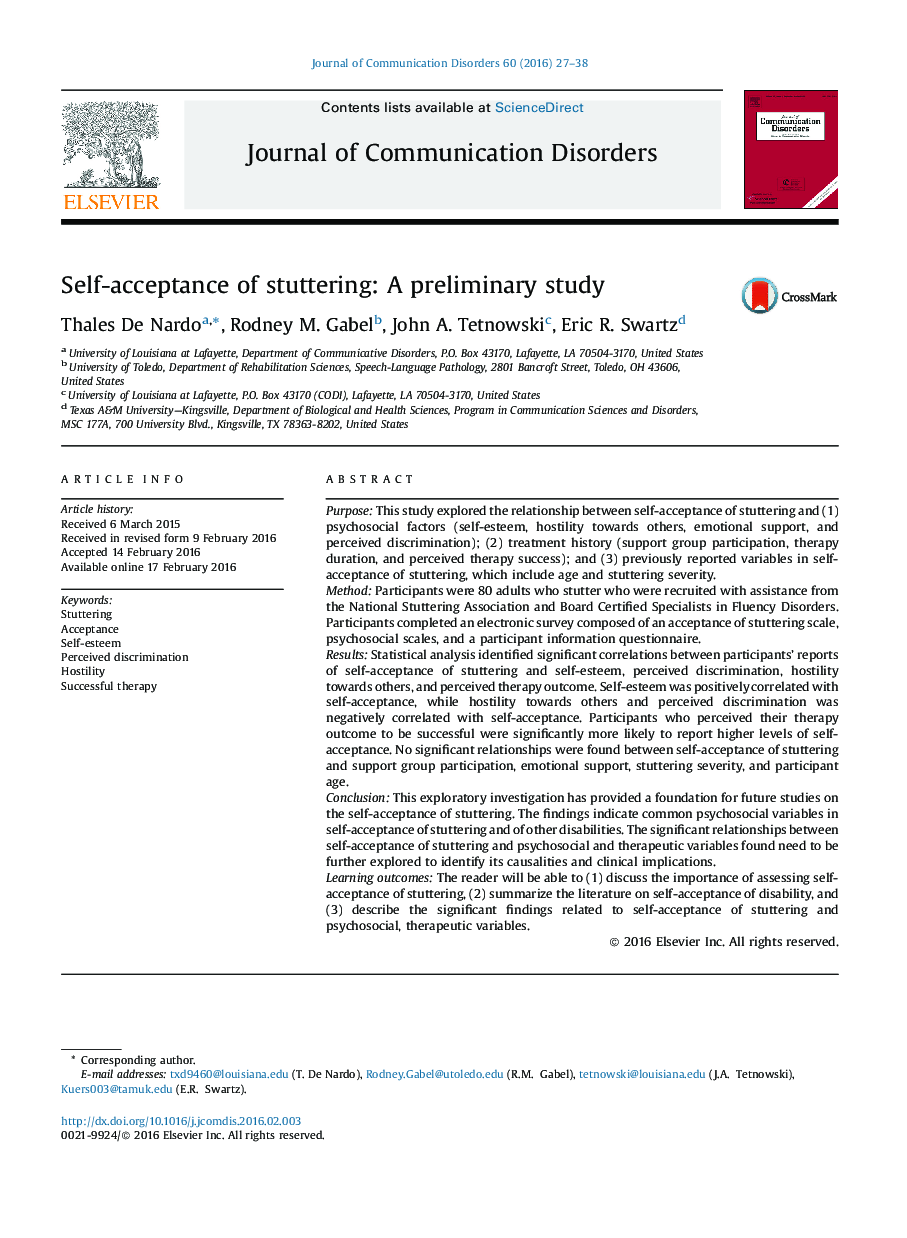| Article ID | Journal | Published Year | Pages | File Type |
|---|---|---|---|---|
| 910727 | Journal of Communication Disorders | 2016 | 12 Pages |
•Acceptance of stuttering was measured with a modified acceptance of disability scale.•Acceptance, self-esteem, perceived discrimination, and hostility were correlated.•Perceived therapy outcome was related to self-acceptance of stuttering.•Age and stuttering severity were not found to be correlated with acceptance.•Acceptance of stuttering and disability share significant psychosocial variables.
PurposeThis study explored the relationship between self-acceptance of stuttering and (1) psychosocial factors (self-esteem, hostility towards others, emotional support, and perceived discrimination); (2) treatment history (support group participation, therapy duration, and perceived therapy success); and (3) previously reported variables in self-acceptance of stuttering, which include age and stuttering severity.MethodParticipants were 80 adults who stutter who were recruited with assistance from the National Stuttering Association and Board Certified Specialists in Fluency Disorders. Participants completed an electronic survey composed of an acceptance of stuttering scale, psychosocial scales, and a participant information questionnaire.ResultsStatistical analysis identified significant correlations between participants’ reports of self-acceptance of stuttering and self-esteem, perceived discrimination, hostility towards others, and perceived therapy outcome. Self-esteem was positively correlated with self-acceptance, while hostility towards others and perceived discrimination was negatively correlated with self-acceptance. Participants who perceived their therapy outcome to be successful were significantly more likely to report higher levels of self-acceptance. No significant relationships were found between self-acceptance of stuttering and support group participation, emotional support, stuttering severity, and participant age.ConclusionThis exploratory investigation has provided a foundation for future studies on the self-acceptance of stuttering. The findings indicate common psychosocial variables in self-acceptance of stuttering and of other disabilities. The significant relationships between self-acceptance of stuttering and psychosocial and therapeutic variables found need to be further explored to identify its causalities and clinical implications.Learning outcomesThe reader will be able to (1) discuss the importance of assessing self-acceptance of stuttering, (2) summarize the literature on self-acceptance of disability, and (3) describe the significant findings related to self-acceptance of stuttering and psychosocial, therapeutic variables.
